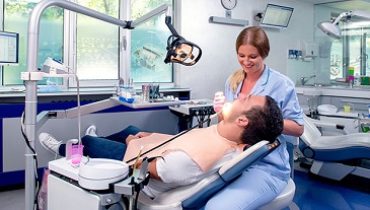Welcome to a healthcare landscape where patient empowerment takes center stage. At 4smile, we believe in the transformative power of patient advocacy to revolutionize the way we approach healthcare. Join us as we explore the vital role of patient advocacy in enhancing the quality of care and empowering individuals to take control of their health journey.
Understanding Patient Advocacy
Defining Patient Advocacy
Patient advocacy encompasses a range of activities aimed at supporting and representing the rights and interests of patients within the healthcare system. At its core, patient advocacy seeks to ensure that patients receive the care, information, and support they need to make informed decisions about their health.
The Importance of Patient Advocacy in Healthcare
In an era of complex healthcare systems and shifting priorities, patient advocacy has emerged as a crucial force for positive change. By amplifying the voices of patients and caregivers, advocacy efforts drive improvements in care delivery, promote health equity, and foster greater accountability within the healthcare industry.
Key Principles of Patient Advocacy
- Empowerment: Equipping patients with the knowledge and tools to advocate for themselves.
- Respect: Upholding the dignity and autonomy of every individual seeking care.
- Collaboration: Working collaboratively with healthcare providers, policymakers, and community stakeholders to effect change.
- Equity: Ensuring that all patients have equal access to high-quality care and resources.
The Role of Patient Advocates
Who Are Patient Advocates?
Patient advocates are individuals or organizations dedicated to supporting and representing the interests of patients. They may include healthcare professionals, social workers, volunteers, or specialized advocacy groups.
Responsibilities of Patient Advocates
- Providing emotional support and guidance to patients and their families.
- Assisting with navigating the healthcare system, including scheduling appointments, accessing resources, and understanding medical bills.
- Advocating for patients’ rights and preferences in treatment decision-making.
- Serving as a liaison between patients and healthcare providers to facilitate communication and resolve concerns.
Qualities of Effective Patient Advocates
- Empathy and compassion
- Strong communication skills
- Knowledge of healthcare systems and policies
- Commitment to patient-centered care
The Impact of Patient Advocacy on Healthcare
Empowering Patients to Make Informed Decisions
Patient advocacy empowers individuals to take an active role in their healthcare journey, arming them with the information and support needed to make informed decisions about their treatment options and preferences.
Ensuring Access to Quality Care
By advocating for equitable access to healthcare services and resources, patient advocates help eliminate barriers to care, particularly for marginalized and underserved populations.
Improving Communication Between Patients and Healthcare Providers
Patient advocates play a vital role in facilitating open, honest communication between patients and healthcare providers, ensuring that patient concerns are heard and addressed effectively.
Advocating for Patient Rights and Dignity
Patient advocates work tirelessly to uphold the rights and dignity of patients, advocating for fair treatment, informed consent, and respect for cultural and personal values.
Incorporating Patient Advocacy into Healthcare Systems
Integrating Patient Advocates into Healthcare Teams
Embedding patient advocates within healthcare teams promotes a patient-centered approach to care delivery, where patients are active partners in decision-making and care planning.
Implementing Patient-Centered Care Models
Healthcare organizations can embrace patient-centered care models that prioritize the needs, preferences, and goals of individual patients, fostering a culture of respect, collaboration, and shared decision-making.
Educating Patients on their Rights and Responsibilities
Empowering patients with knowledge about their rights and responsibilities within the healthcare system equips them to advocate for themselves and actively participate in their own care.
Challenges and Barriers in Patient Advocacy
Lack of Awareness and Resources
Many patients may be unaware of the availability of patient advocacy services or lack access to support due to limited resources or funding constraints.
Legal and Ethical Considerations
Patient advocates must navigate complex legal and ethical considerations, including issues related to patient privacy, confidentiality, and conflicts of interest.
Overcoming Stigma and Bias
Stigma and bias within the healthcare system can pose significant challenges to effective patient advocacy, particularly for marginalized or vulnerable populations facing discrimination or social stigma.
FAQ’s
How can I find a patient advocate?
Patient advocates may be available through healthcare organizations, patient advocacy groups, or independent advocacy services. Ask your healthcare provider or search online for resources in your area.
Is patient advocacy only for individuals with serious medical conditions?
Patient advocacy services are available to individuals facing a wide range of healthcare challenges, from navigating complex treatment decisions to resolving billing disputes.
Conclusion: Empowering Patients, Transforming Healthcare
patient advocacy holds the power to revolutionize healthcare by placing patients at the heart of decision-making and care delivery. By joining forces with 4smile, you’re not just accessing quality dental care—you’re becoming part of a movement to elevate care, empower patients, and transform the healthcare experience for all.
